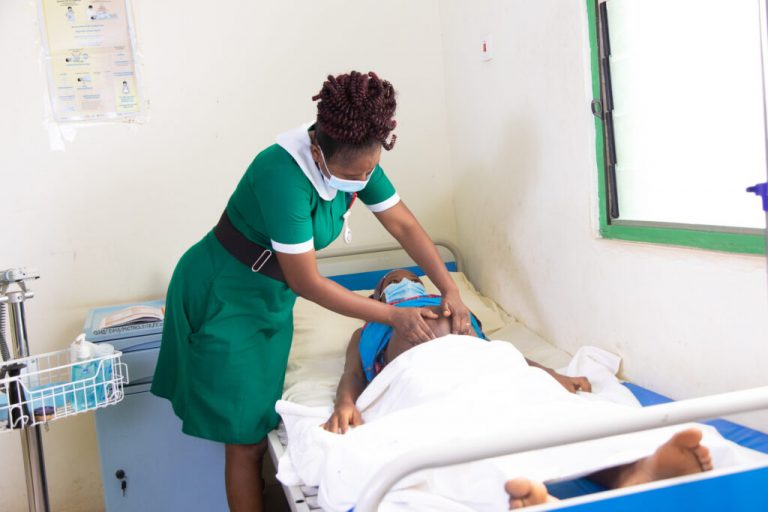This blog was originally posted on the USAID MOMENTUM website.
In Ghana, midwives are not just health workers, they are also mothers, sisters, neighbors, and trusted companions of women during pregnancy and childbirth. When a woman delivers in Essipon, a small community in Sekondi, Ghana, local midwife Juliana Brient is likely to know her name, where she lives, and how she is faring.
As a mother of two, as well as a midwife at the Essipon Health Center, Juliana is familiar with the experience of expectant, recently delivered, and breastfeeding mothers. However, the COVID-19 pandemic has presented Juliana and her team with a new challenge: maintaining essential health care services for expectant and new mothers during a pandemic.
Ghana has one of the highest numbers of COVID-19 cases and deaths in West Africa, and the pandemic continues to disrupt every facet of everyday life while also testing the resilience of the country’s health system. Despite early and decisive measures to limit the spread of the virus, new and more contagious variants of the virus have plunged the country into a second wave, and health systems are now bracing for the third.1
At the forefront of the COVID-19 response are frontline health workers, including midwives such as Juliana, who go beyond the call of duty and risk their lives to provide essential services to their clients.
Read more on the USAID MOMENTUM website.
